Rugby is a religion in Wales. It’s not; it’s more important than that.
No one is certain of the exact provenance of the quote, but it’s an attitude that has held sway in Wales for more than half a century.
As Welsh rugby finds itself engulfed by another existential crisis, there’s no doubt that the congregation is dwindling, and the faith lapsing. A combined twenty-thousand empty seats for the last two home games against France and Italy is testament to that. And the TV audience for the ignominious defeat to Italy was the lowest it’s ever been since the start of the Six Nations.
Our obsession with rugby is both a blessing and a curse. Triumphs are met with exaggerated elation, coaches that deliver them are worshipped with messianic zeal, and our best players are accorded a saintly status.
Until they lose. Then they’re outcasts, scapegoats and pariahs. The way the mood of a nation can be so dramatically altered by what happens when fifteen players boot a ball around a rectangle of grass is borderline comical.
As the Italian hangover begins to recede, Welsh headaches are thrumming with ever greater intensity. No nation does feast to famine on such an industrial scale. Defeats can’t be assessed in isolation. They’re always the catalyst for complete overhauls, for root-and-branch reviews. From the dew-laden grass of Pantyffynnon RFC to the Desso-weaved blades at the Principality Stadium. In Wales, it’s never a case of a tweak here, a shift of emphasis there. The solution is always … always … a complete and utter rebuild. A bundle of dynamite under the entire bulging edifice.
Scotland’s tournament unravelled spectacularly amid disciplinary breaches and an alarming on-field regression. England fans are getting increasingly restless with Eddie Jones’s ceaseless quest for a new identity. But these afflictions don’t seem terminal in the way Wales’s do. Only Wales can tumble so dramatically into the abyss.
A poor run of performances isn’t just a poor run of performances. It’s the first tremor of a devastating earthquake. Welsh rugby is an active volcano perpetually on the verge of cataclysmic eruption. Read: Mike Ruddock’s acrimonious departure after the first Grand Slam of the professional era, Gareth Jenkins’ car-park sacking in 2007, the all-out scrapping between the Neath contingent and the rest on the disastrous Australian tour of 1989. Perspective isn’t something the Welsh are renowned for, and the advent of social media means half-baked arguments can be reheated and recycled until they become amplified into inescapable portents of doom.
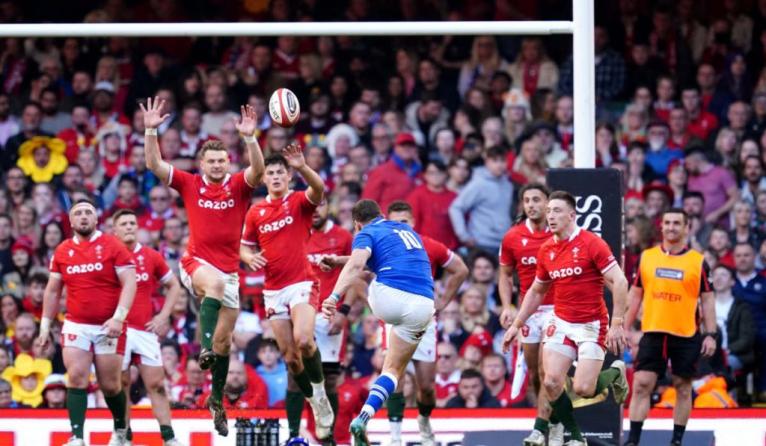
A Twitter echo chamber in which variants of “the game is rotten to the core” bounce endlessly around absorbing more vitriol with every fevered retweet, until every Welsh fan seems consumed by a pyretic, frothing anger. This then defines the narrative, with more nuanced responses buried under an avalanche of pessimism. The application of practical solutions in such a scenario can seem pointless and overwhelming. Easier to howl into the void.
Performances on the pitch ebb and flow. Let it not be forgotten that Wales entered this tournament as defending champions, and ran the World Champions close in the autumn. Those who routinely deride last year’s triumph as “lucky” are delusional. There were elements of luck that Wales rode, but you don’t fluke your way to a Six Nations title. What cannot be denied is that the structure of Welsh rugby is crumbling, and when a towering building collapses, it’s those on the top floor that have the furthest to fall. Team Wales under Warren Gatland – whose every whim was catered for by a generous and supportive WRU – was sheltered from the chaos enveloping Welsh rugby from below. The national side was the gleaming bonnet covering the rusty engine. This past weekend feels like a reckoning.
Wales’s defeat to Italy registered highest on the Richter scale, but the U20s loss to the same opponent was equally alarming, as were the capitulations suffered by Cardiff and the Scarlets in South Africa. Collectively, these results have exposed the faultlines within. It’s like the scene in National Lampoon’s Christmas Vacation where Chevy Chase plunges the carving knife into the gleaming Christmas turkey, only to discover its insides are desiccated and inedible.
That loss – the first ever against the Azzurri in Cardiff – can be explained away in purely rugby terms: Italy showed more heart and were tactically more astute. Wales made too many changes and lacked fluidity; their inability to finish off chances in the red zone cost them dearly. But it’s also a symptom of wider decline. Wayne Pivac has been in charge for three campaigns, and in two of them, Wales have finished fifth. That’s not, however, just down to the way the national side is coached and prepared. The Welsh Rugby Union needs to take its share of responsibility.
Former chairman and CEO, Gareth Davies and Martyn Phillips, sought to streamline the governing body. They wanted to make it more agile and progressive, capable of enacting swift change in a dynamic, evolving business world. Ultimately, they were defeated by a bloated, anachronistic system that allows tiny grass-roots clubs to vote on decisions that need to be taken by experienced operators at the sharp end of professional sport. The old guard didn’t like what they were seeing and seized back control.
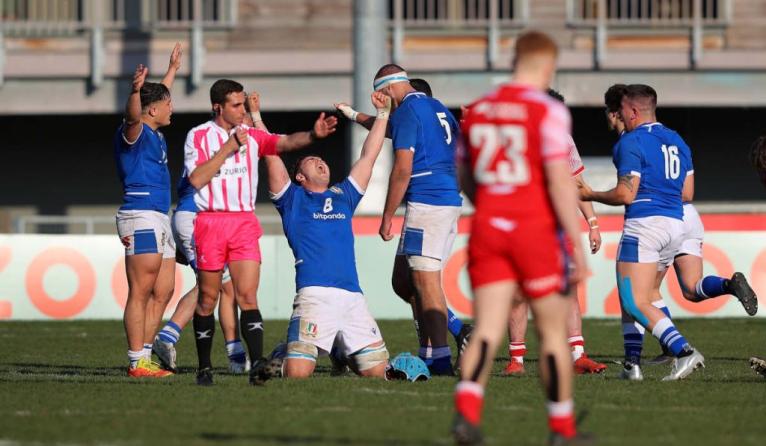
The amateur clubs – via their district representatives – still comprise the majority on the board, and can easily veto any major policy change. Gareth Davies didn’t mince his words this week when he declared that the constitution needs to be ripped up and rewritten. He’s not the only one. Another former Welsh rugby powerbroker told me that,“the real issue is the ‘broken’ culture of the WRU.” He went on to describe it as “the worst example of public sector culture I’ve ever known. The board of the WRU is elected by octogenarians who are the only ones who can be bothered to turn up for the district meetings. That’s the nub of the problem.” Welsh rugby deserves better. What other multi-million pound businesses can be held to ransom by such stifling bureaucracy? And it’s not just about parochialism and self-interest. The troubling allegations of sexism, racism and misogyny recently outlined in the Daily Mail, cast this notion of a “broken culture” in a much darker hue.
WRU CEOs have rarely been harmonious, consensus-seeking figures. David Moffett was simultaneously admired as an unsentimental pragmatist, and reviled as the destroyer of tradition. Roger Lewis was celebrated on the one hand as a visionary who paved the way for a Welsh golden era, but despised for his neglect of the regional game on the other. The opinion among his detractors is that we’re back in that space, where the rest of the game was allowed to wither so long as the stadium was full and Wales were winning. That’s no longer the case, and urgent questions need to be addressed.
It’s a commonly-expressed concern that not enough talent is coming through to replace the golden generation nurtured under Gatland. The Welsh Premiership – supposedly the feeder league to the United Rugby Championship – has seen its funding steadily decline, and its structure fiddled with to the degree that any semblance of credibility and consistency has disappeared. Nominally referred to as a semi-pro league, it’s now considered more of an amateur sideshow, with the gulf in playing standards between it and the URC too wide to breach. As one insider told me, “as a development pathway for the regions and Wales, it’s useless, because of the standard of player there. It isn’t even safe to be bringing them up into the regions from the Premiership. They’re not pros. It was the case for years that a good core of the team would be pros, and playing more or less at a regional standard. Not any more.”
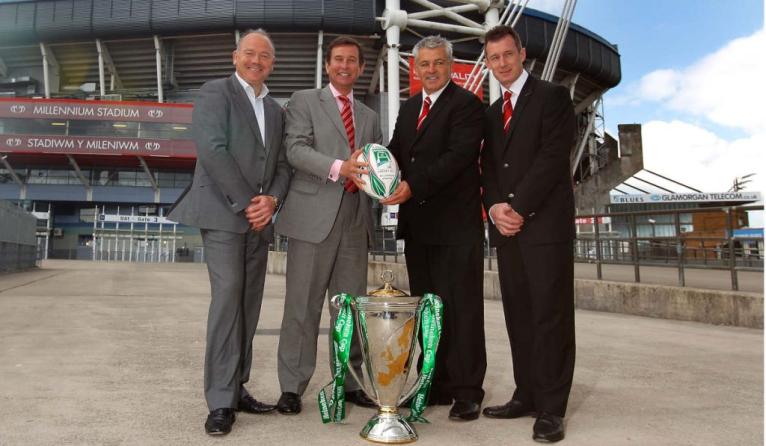
So if the Premiership isn’t fit for purpose, the main source of future talent is the academy system but, as a former regional insider has told me, “these players are not getting the hard nosed, grass-roots experience of a quality Premiership. They get wrapped up in cotton wool when they need to be playing week-in, week-out against big boys.”
Cardiff Metropolitan University, which has an enviable record of producing international players, recently told Rugby Pass+ that the Welsh Rugby Union treats them with suspicion rather than admiration. They’re seen to be encroaching on the WRU’s territory rather than embraced as a complementary talent pipeline. That, according to my source, is indicative of the “inward-looking culture of the WRU”. In a small country that doesn’t have the luxury of 13 or 14 professional clubs (like England and France), it’s vital that every potential source is mined for talent. There should be closer ties between universities and private schools. WRU Performance director, Nigel Walker’s presence at last night’s BUCs Super Rugby quarter-final between Cardiff Met and Cardiff University was hopefully a sign of new links being forged.
The same source continues, “We’ve hit a new low. If you look at Dai Pickering and Roger Lewis, at least they had a strategy. They were very determined, and Roger Lewis was energetic and reasonably competent. I see the current administration as a backward step. They live in a bubble, growing fat on Six Nations money, and are not held to account by anyone. The board there now is probably worse than it’s ever been. Culture within an organisation is so vital. An organisation with such a toxic culture as the WRU makes good people really bad. There are people in positions of power in Welsh rugby that wouldn’t last five minutes in the business world.”
Roger Lewis made no secret of his disdain for the regions, once telling this writer that they would “cease to exist” if they didn’t sign a new participation agreement by an arbitrary deadline. It was both provocative and threatening, and further poisoned the relationship between the WRU and the regions. That mutual distrust lingers to this day. The regions think they’re being short-changed by a WRU that prefers to pour extra monies into capital investments like the new Parkgate Hotel in Cardiff. The current CEO, Steve Lewis, used to be the chief finance officer. Accountants, by their nature, are fiscally conservative. The WRU’s philosophy is that extra revenue from the likes of CVC would generate more profit for the game as a whole if it’s invested in bricks and mortar, as opposed to distributed to the regions. You sense that the Union still fears any extra funding for the regions would disappear into a black hole.
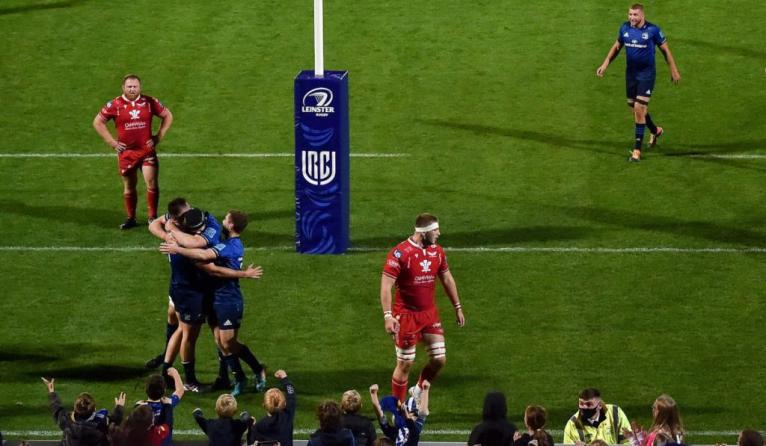
The Professional Game Board was formed to try to encourage a more collegiate, cooperative approach between the two sides, but the former chair, Amanda Blanc’s abrupt departure last November suggests that divisions remain. Her successor, Malcolm Wall, will need to be equal parts charming and ruthless if compromises are to be found. Welsh regional rugby has long gazed across the Irish Sea in envy as the Irish provinces, bankrolled more generously by their own union, have flourished, grown and filled their trophy cabinets. And the pyramid is now complete with the national side scooping the Triple Crown, and the U20s another Grand Slam. The Welsh model, in which test rugby is the cash cow, relies on the international side, and the stadium generating most of the income. When less pours through those coffers, less filters down to the regional game. This campaign alone has seen a shortfall of millions when lost prize money and unsold tickets are taken into account. This smacks of terminal decline.
Less money means smaller playing budgets, fewer bankable stars, and a lower calibre of coaches. That leads to poorer performance, dwindling crowds, and a hollowed-out professional game. The national side will get weaker, as it will be comprised mainly of players from these neutered regional sides. A bleak forecast this may be, but it should also be a catalyst for action; for restructuring the pathway, for greater cooperation between the regions and the union, and more targeted funding for parts of the game that are cash-starved and wilting.
There was a glimmer of positive news on Tuesday with the announcement that the WRU had renegotiated the terms of a loan taken out during the pandemic to keep the regions afloat. It will now be paid back over twenty years as opposed to three. The four regions each released statements thanking the Welsh government for its assistance in the negotiations, while conspicuously failing to acknowledge the WRU’s role. It remains a source of bitterness that the WRU made the regions entirely liable for the repayment of the loans despite them teetering on the verge of bankruptcy at the time.
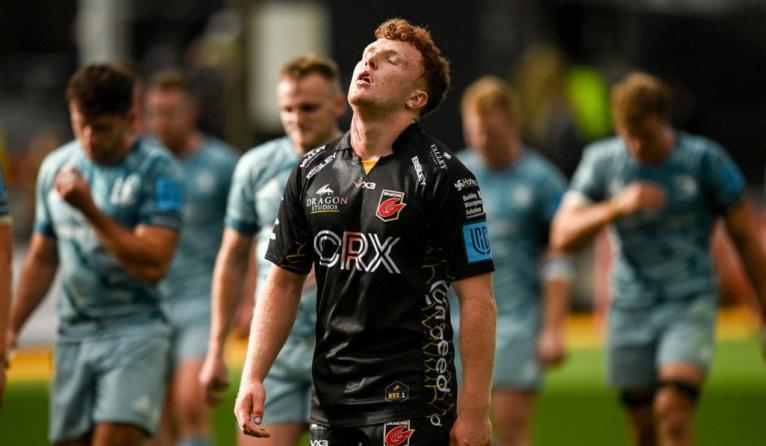
Perhaps the biggest elephant in the room is the number of regions. A botched attempt to merge the Scarlets and the Ospreys in 2019 was quickly buried, and the status quo has been retained ever since. But if the four existing regions continue to exist in a state of mediocrity, playing in half-empty stadiums, then an unpalatable truth needs to be confronted: Wales can only afford three. North Wales continues to harbour a grudge at its exclusion from professional rugby, whereas South Wales has all four professional clubs clustered together along the M4 corridor. Cardiff and the Dragons are 12 miles apart; so too are the Scarlets and the Ospreys. They’re therefore competing for the same sponsorship money from the same limited sources, further diluting the available funds. If – for the sake of argument – three new regions were formed in the East, West, and North, the money invested in the professional game would go further. Squads would be stronger, coaching teams more experienced, and academies more fruitful. It’s not a silver bullet though, as existing TV revenue (by far the biggest source of income) is contingent on the WRU entering four professional teams in the competitions they play in. Drastic times though, call for drastic measures.
There’s no doubt covid has wrought untold devastation on the game in Wales. Before the pandemic, there were some reasons to be positive. Amid all the gloom, it’s worth pointing out some of the success stories. The Scarlets had shown that with a bit of nous, and strong leadership, regional rugby could work. They won the Pro12 title in 2017, reached a European semi-final the following year, and started to turn a profit. Not a big one, necessarily, but in a sport where most club year-end accounts are in red, it was a welcome change.
Crises in Welsh rugby are not unique. We’ve been here before. But often the response is to sling a metaphorical dead cat on the table. Dramatic, headline-grabbing gestures (like the sacking of a coach, or the hiring of new one) may pacify the frothing masses but it won’t address the structural decline. The cathedral of Welsh rugby is crumbling, its pews are emptying. If rugby truly is the religion of Wales, it’s time for its spiritual leaders to act.



Thanks for a good piece Ross. The idea of East and West Wales, with the option of North Wales as a natural development region was mooted over 20 years ago by Graham Henry. It gets rid of the club-isms at a stroke and needs to be pursued now as a matter of urgency.
Excellent piece. As an English observer it contains no surprises. If it doesn’t change now, it may never recover.